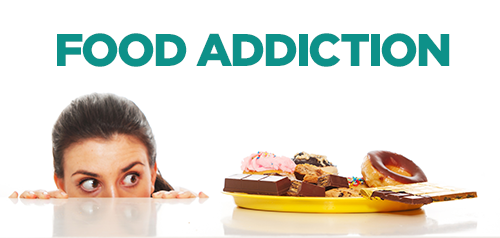

“If you’re a food addict, you want to have this neutrality around food. Now, Sarah enjoys food, rather than craves it. Like other recovering food addicts, she reads program literature, meditates and tries to help others. She calls her sponsor (a fellow recovering addict who guides another member through the steps) every morning to check in and discuss whatever’s on her mind. Sarah attends a Saturday morning meeting in the cafeteria at Nyack Hospital.

Today, there are more than 7,000 members nationwide. This newer program has more specific rules of abstinence, including no refined sugar, flours or large quantities. Ten years into her recovery, Sarah and about 100 others left Overeaters Anonymous to start Food Addicts in Recovery Anonymous in 1998, because they wanted to focus more on food addiction rather than compulsive overeating. I’d do really well for like a week or two, and then I’d think, ‘Well, one or two more won’t hurt me.’ And that’s the biggest lie for me because I never have just one.” “Every diet I tried, I felt like I was paying people to gain weight. “But I ended up binging on the bars and shakes,” Sarah says. One of the diets she tried involved shakes and bars. One time when a baby-sitting home had no microwave, Sarah hacked into a tin-foil-wrapped cake she found in the freezer with a machete, eating shards because she couldn’t wait for it to thaw. Kids can have ravenous appetites, but this was more than that. As a teen, when she baby-sat and the kids went to bed, Sarah would raid the cabinets and fridge to eat the food she thought parents wouldn’t notice was missing. As a toddler, she’d eat the whole sleeve of crackers. She tried many diets, including Weight Watchers, as well as fat camp, therapy and an ashram.Īt 5 feet, 3 inches, Sarah was almost 200 pounds when she walked into her first Overeaters Anonymous meeting. She joined Overeaters Anonymous when she was 20 and in college, after have struggled with her weight since she was in sixth grade. “Sarah,” 51, is an Ivy League graduate, a former attorney and artist, and now a full-time mother of a special needs child living in Chestnut Ridge. Their names have been changed to protect their anonymity. Two women who attend the Rockland County meeting took time to share their experiences. Keeping the anonymity of those who attend is a foundational principle that allows people to feel safe to share in meetings. Often a $1 or $2 donation to cover expenses is suggested, but it’s totally acceptable to pass the basket. These 12-step meetings are open to the public and free. Still, members say they’re helped by delving deeper into the underlying emotional and spiritual root causes of abusing food.Īt Food Addicts in Recovery Anonymous, there aren’t any weigh-ins it’s for people who are overweight, dangerously underweight or trying to control their eating to the point of obsession through under-eating, bulimia or over-exercising. It’s just a little more complicated than that.” “With stress- and emotional-eating, there are so many factors that go into it. “A lot of food industry companies design foods to whet your appetite to get that response so you’ll eat more and more and more and more and more,” says Arpino, who doesn’t agree with everything taught in 12-step programs. There’s that dopamine, as well as tryptophan and serotonin response, as far as wanting more, she says. She runs two Life Focus Nutrition centers in Rye Brook and Stamford, Connecticut.


Sugar, including refined carbohydrates that turn into sugar, causes insulin spikes when not paired with fiber, and the resulting energy crash can cause overeating, says Linda Arpino, a registered dietitian nutritionist with New York and Connecticut state licenses as a dietitian-nutritionist. Sweet-tasting foods have been found to have an analgesic effect, so some people can consume more sweet-tasting food when they feel pain, according to a November 2016 PLoS One journal study published by the U.S. The physical aspect cannot be denied, however.įood can activate the same dopamine reward centers as alcohol and drugs do, leading to abuse of food for some people. They delve deeper into the underlying emotional and spiritual root causes of abusing food. These programs go beyond addressing the physical malady with a food plan found in most diets. It’s one of several such 12-step food groups, which began with Overeaters Anonymous in 1960. HEALTH: Can swings in temperature make you sick?įood Addicts in Recovery Anonymous is a program of long-term recovery with a meeting in Nyack among others nationwide. COLUMN: Sprinting to Metro-North can be an Olympic event


 0 kommentar(er)
0 kommentar(er)
